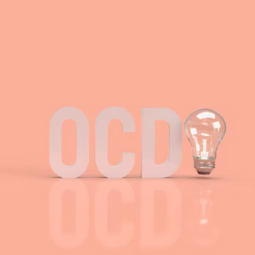We Provide Help for a range of Mental Health Concerns
Overview
Obsessive compulsive disorder
Obsessive-Compulsive Disorder (OCD) is a mental health condition characterized by recurrent, intrusive thoughts (obsessions) and repetitive behaviors or mental acts (compulsions) performed in response to those thoughts. Individuals with OCD often experience significant distress and impairment in daily functioning due to the time-consuming and distressing nature of their symptoms.
Here’s how we can help individuals with OCD:
- Therapy: Cognitive-behavioral therapy (CBT), particularly exposure and response prevention (ERP), is considered the most effective treatment for OCD. ERP involves gradually exposing individuals to situations or triggers that provoke their obsessions while preventing the associated compulsive behaviors. Over time, this helps individuals learn to tolerate the distress caused by their obsessions without engaging in compulsions.
- Medication: Selective serotonin reuptake inhibitors (SSRIs), such as fluoxetine, sertraline, and fluvoxamine, are commonly prescribed medications for OCD. SSRIs can help reduce the frequency and severity of obsessions and compulsions and improve overall functioning. In some cases, other medications such as tricyclic antidepressants or serotonin-norepinephrine reuptake inhibitors (SNRIs) may be used. Book an appointment with our expert psychiatrist, Dr. Aditi Hinge, who will prescribe the medications as per your need.
- Psychoeducation: Providing information about OCD, its symptoms, causes, and treatment options can help individuals and their families better understand the condition, reduce stigma, and feel more empowered to engage in treatment and support the recovery process.
- Supportive therapy: Providing empathy, validation, and support can help individuals feel understood and accepted, reducing feelings of shame or isolation associated with OCD.
- Coping skills training: Teaching individuals coping strategies such as relaxation techniques, mindfulness meditation, and stress management skills can help them manage anxiety and distress related to their OCD symptoms.
- Family therapy: Involving family members in treatment can help improve communication, provide support, and reduce family accommodation of OCD symptoms, which can inadvertently reinforce the disorder.
- Social support: Encouraging individuals to connect with peer support groups or online communities for individuals with OCD can provide validation, understanding, and opportunities for shared experiences and coping strategies.
- Follow-up and monitoring: Regular follow-up appointments and monitoring of symptoms and medication adherence are important for tracking progress, adjusting treatment as needed, and providing ongoing support and guidance to individuals with OCD.
It’s important to approach each individual with OCD holistically and tailor treatment to their specific needs, preferences, and circumstances. By providing evidence-based care and support, we can help individuals with OCD manage their symptoms, improve their quality of life, and achieve greater levels of functioning and well-being.


